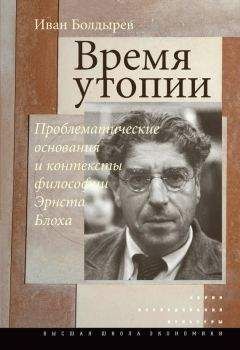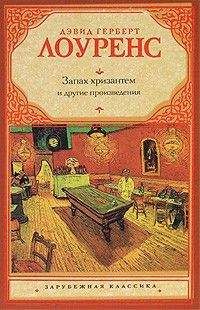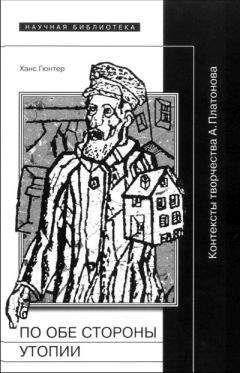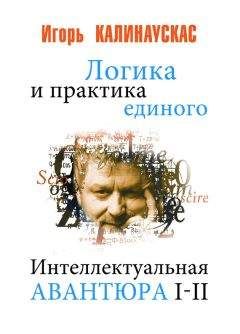Дэвид Лоуренс - Английский с Дэвидом Г. Лоуренсом. Тень в розовом саду / D. H. Lawrence. The Shadow in the Rose Garden
“He chucked you?” said the husband brutally, wanting to hurt her into contact with himself. Her heart rose wildly with rage. Then “Yes”, she said, to anger him. He shifted from one foot to the other, giving a “Ph!” of rage. There was silence for a time.
“Then,” she resumed, her pain giving a mocking note to her words, “he suddenly went out to fight in Africa, and almost the very day I first met you, I heard from Miss Birch he’d got sunstroke – and two months after, that he was dead —”
“That was before you took on with me?” said the husband.
There was no answer (ответа не было). Neither spoke for a time (какое-то время ни один не говорил). He had not understood (он раньше не понял). His eyes were contracted uglily (его глаза мерзко сощурились; to contract – сжимать/ся/, сокращать/ся/; суживать/ся/).
“So you’ve been looking at your old courting places (значит, ты навещала места своих прежних шашней; to look – смотреть; осматривать; to court – ухаживать, добиваться расположения)!” he said. “That was what you wanted to go out by yourself for this morning (вот куда ты хотела пойти одна нынче утром).”
Still she did not answer him anything (она по-прежнему ничего ему не отвечала). He went away from the door to the window (он отошел от двери к окну). He stood with his hands behind him, his back to her (он стоял, заложив сзади руки, спиной к ней). She looked at him (она посмотрела на него). His hands seemed gross to her, the back of his head paltry (его руки показались ей грубыми, затылок – презренным; gross – грубый, вульгарный; back – спина; тыльная сторона, задняя часть; paltry – ничтожный, мелкий; жалкий, презренный).
At length, almost against his will, he turned round, asking (наконец, чуть не против своей воли, он повернулся и спросил; almost – почти; едва не):
“How long were you carrying on with him (как долго у тебя с ним была связь; to carry on – продолжать/ся/; /разг./ флиртовать; иметь любовную связь)?”
There was no answer. Neither spoke for a time. He had not understood. His eyes were contracted uglily.
“So you’ve been looking at your old courting places!” he said. “That was what you wanted to go out by yourself for this morning.”
Still she did not answer him anything. He went away from the door to the window. He stood with his hands behind him, his back to her. She looked at him. His hands seemed gross to her, the back of his head paltry.
At length, almost against his will, he turned round, asking:
“How long were you carrying on with him?”
“What do you mean?” she replied coldly (что ты имеешь в виду/что ты хочешь сказать? – холодно ответила она; to mean – иметь в виду, подразумевать).
“I mean how long were you carrying on with him (я хочу сказать, как долго у тебя с ним была связь)?”
She lifted her head, averting her face from him (она подняла голову, отворачивая от него лицо). She refused to answer (она отказывалась отвечать). Then she said (затем сказала):
“I don’t know what you mean, by carrying on (не знаю, что ты хочешь сказать этим «была связь»). I loved him from the first days I met him (я любила его с первых дней, как повстречала…) – two months after I went to stay with Miss Birch (через два месяца после того, как я уехала жить у мисс Бёрч; to stay – оставаться; останавливаться, жить; гостить).”
“And do you reckon he loved you?” he jeered (и ты думаешь, он тебя любил? – язвил он; to reckon – считать /особ. в уме/, подсчитывать; думать, полагать; to jeer – насмехаться, язвить).
“I know he did (я знаю, что любил).”
“How do you know, if he’d have no more to do with you (как = откуда ты знаешь, если он решил больше не знаться с тобой; to have to do with – иметь отношение /к кому-л., чему-л./; быть связанным /с кем-л., чем-л./; знать /кого-л./)?”
“What do you mean?” she replied coldly.
“I mean how long were you carrying on with him?”
She lifted her head, averting her face from him. She refused to answer. Then she said:
“I don’t know what you mean, by carrying on. I loved him from the first days I met him – two months after I went to stay with Miss Birch.”
“And do you reckon he loved you?” he jeered.
“I know he did.”
“How do you know, if he’d have no more to do with you?”
There was a long silence of hate and suffering (настало долгое молчание /, полное/ ненависти и страдания).
“And how far did it go between you (и как далеко зашло между вами)?” he asked at length, in a frightened, stiff voice (спросил он наконец испуганным, сдавленным голосом; to frighten – пугать; fright – сильный внезапный испуг; stiff – жесткий, тугой; оцепеневший; неловкий).
“I hate your not-straightforward questions,” she cried, beside herself with his baiting (ненавижу твои окольные вопросы, – воскликнула она, вне себя от его издевательств; straightforward – прямой; движущийся или идущий прямо вперед; открытый, откровенный; straight – прямой, неизогнутый; beside – рядом, около; вне, за пределами; baiting – травля; to bait – травить /собаками/; изводить, не давать покоя). “We loved each other, and we were lovers – we were (мы любили друг друга, и мы были любовниками – да, были). I don’t care what you think: what have you got to do with it (мне все равно, что ты думаешь: какое ты имеешь к этому отношение = тебе-то что за дело; to care – заботиться; беспокоиться, тревожиться)? We were lovers before ever I knew you (мы были любовниками до того, как я вообще познакомилась с тобой…; ever – всегда; когда-либо; для эмоц. усиления) —”
“Lovers – lovers,” he said, white with fury (любовниками… любовниками, – повторил он, белый от ярости). “You mean you had your fling with an army man (ты хочешь сказать, что погуляла с военным: «армейским человеком»; fling – бросок, швыряние; разгул, веселое жилье; to have one`s fling – перебеситься, отдать дань увлечениям юности; army – армия), and then came to me to marry you when you’d done (а потом пришла ко мне, чтобы я на тебе женился, когда ты…) —”
She sat swallowing her bitterness (она сидела, глотая горечь; to swallow – глотать, проглатывать; подавлять, сдерживать; bitterness – горечь /прям. и перен./; bitter – горький; мучительный). There was a long pause (наступила долгая пауза).
There was a long silence of hate and suffering.
“And how far did it go between you?” he asked at length, in a frightened, stiff voice.
“I hate your not-straightforward questions,” she cried, beside herself with his baiting. “We loved each other, and we were lovers – we were. I don’t care what you think: what have you got to do with it? We were lovers before ever I knew you —”
“Lovers – lovers,” he said, white with fury. “You mean you had your fling with an army man, and then came to me to marry you when you’d done —”
She sat swallowing her bitterness. There was a long pause.
“Do you mean to say you used to go – the whole hogger (ты хочешь сказать, что тогда ты… пошла на всё; to go the whole hog – /разг./ делать что-л. основательно, доводить до конца; полностью отдаваться /чему-л./; hog – /брит./ боров; /амер./ свинья; whole hogger – человек, идущий до конца, ничего не жалеющий)?” he asked, still incredulous (спросил он, все еще не веря; incredulous – недоверчивый).
“Why, what else do you think I mean?” she cried brutally (ну а что еще, по-твоему, я хочу сказать? – грубо выкрикнула она; why – почему?; как! ба! ну конечно! ведь /выражает удивление, согласие, недоверие и т. д./).
He shrank, and became white, impersonal (он съежился и сделался бледным и отчужденным; to shrink – садиться /о ткани/; сжиматься, съеживаться; white – белый; бледный; impersonal – обезличенный; равнодушный; холодный, отчужденный; personal – личный). There was a long, paralysed silence (наступило долгое парализованное = скованное молчание; silence – тишина; молчание). He seemed to have gone small (он, казалось, уменьшился: «стал маленьким»; to go – идти, ходить; становиться).
“You never thought to tell me all this before I married you (ты и не думала рассказать мне всё это до того, как я на тебе женился),” he said, with bitter irony, at last (сказал он наконец с горькой иронией).
“You never asked me,” she replied (ты никогда меня не спрашивал, – ответила она).
“I never thought there was any need (я никогда и не думал, что есть необходимость).”
“Do you mean to say you used to go – the whole hogger?” he asked, still incredulous.
“Why, what else do you think I mean?” she cried brutally.
He shrank, and became white, impersonal. There was a long, paralysed silence. He seemed to have gone small.
“You never thought to tell me all this before I married you,” he said, with bitter irony, at last.
“You never asked me,” she replied.
“I never thought there was any need.”
“Well, then, you should think (ну, значит, тебе следовало подумать).”
He stood with expressionless, almost childlike set face (он стоял с ничего не выражающим, застывшим в почти детской гримасе лицом; expressionless – невыразительный; ничего не выражающий; expression – выражение; to express – выражать; childlike – по-детски простой; child – ребенок, дитя), revolving many thoughts, whilst his heart was mad with anguish (обдумывая множество мыслей, в то время как его сердце обезумело от муки/страданий; to revolve – вращать/ся/; обдумывать, размышлять).
Suddenly she added (неожиданно она прибавила):
“And I saw him today (и я видела его сегодня),” she said. “He is not dead, he’s mad (он не мертвый, он сумасшедший).”
Her husband looked at her, startled (ее муж смотрел на нее, пораженный; to startle – испугать; поразить; вздрогнуть).
“Mad!’ he said involuntarily (сумасшедший! – невольно произнес он).
“Well, then, you should think.”
He stood with expressionless, almost childlike set face, revolving many thoughts, whilst his heart was mad with anguish.
Suddenly she added:
“And I saw him today,” she said. “He is not dead, he’s mad.”
Her husband looked at her, startled.
“Mad!’ he said involuntarily.




